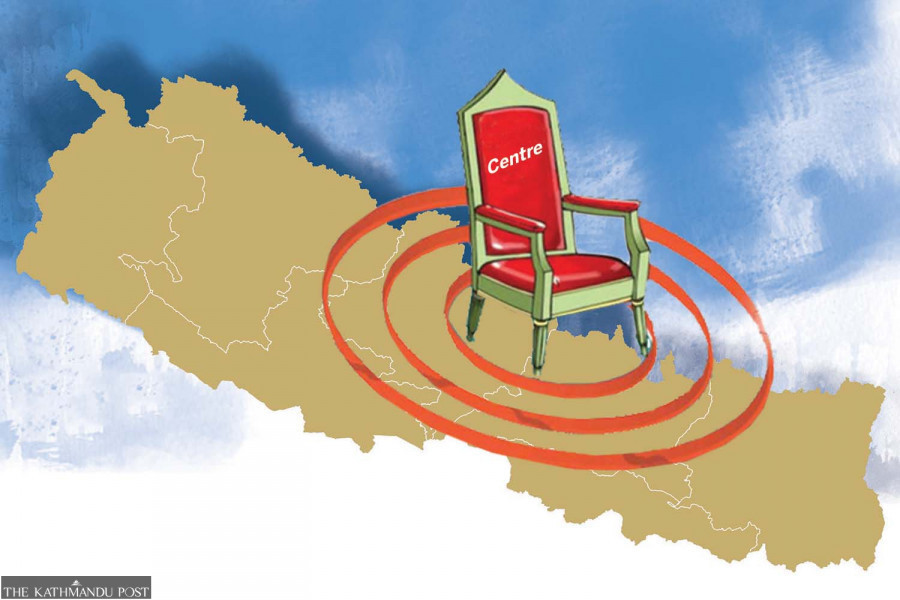Editorial
Problem in provinces
The provincial-level leaders should stop acting as puppets of their political masters in Kathmandu.
In the Intergovernmental Fiscal Council meeting held in Surkhet of Karnali Province this weekend, chief ministers and ministers from provincial governments made various demands before Finance Minister Barsha Man Pun, who was chairing the meeting. In the presence of chiefs and officials from the National Planning Commission and the National Natural Resources and Fiscal Commission, among other entities, the provincial leaders tried to convince the top guns of the federal bodies to allocate more funds to their respective sub-national governments and allow them to generate more revenues for themselves.
Yamlal Kandel, newly appointed Chief Minister of Karnali Province, while airing his views, presented an 11-point demand before the federal finance minister to highlight why his province deserves more support from the federal government. He said Karnali, which has historically been a backwarded region compared to other parts of the country, should get priority during budget allocation. He also asked them to keep in mind the province’s vast and difficult terrains instead of considering only the population as a major basis while earmarking funds. Likewise, Jagannath Thapaliya, minister for fiscal affairs and planning of Bagmati Province, argued that the provinces should have a greater role in implementing small projects so as to expedite development activities. Other provincial leaders had similar views.
As Nepal’s federal system is still in its infancy, such demands by leaders from sub-national governments are natural and valid. Their first-hand experience should be taken seriously and such interactions need to be held more frequently. For one, the provincial representatives should continue to assert themselves; nearly a decade-long experience shows that our leaders at the centre are still hesitant to devolve power to the sub-national governments. This is obvious as most leaders of the major political forces are reluctant federalists, who accepted the concept only in the latter stage of their long political careers spent under a unitary setup.
However, there is a lot that provincial leaders should improve as well. Their performance in the first five-year term was not impressive. They failed to win public trust in Covid pandemic and to justify their relevance in other crucial times. For instance, people in recent weeks have been struggling to cope with disastrous fire incidents in various parts of the country. Fires gutted entire settlements in Mahottari, Gulmi, Arghakhanchi and various other districts last week. Provincial leaders however were aloof from such tragic incidents. They were rather engaged in the making and breaking of the sub-national governments.
Nearly two months after Prime Minister Pushpa Kamal Dahal changed his coalition partners, the functioning of the federal government has gained momentum. But the provincial leaders are still bickering over power-sharing. While some of them are struggling to form a government, others haven’t been able to give full shape to their Cabinets. In the past eight years, provincial leaders have been clamouring for more rights and autonomy, yet they are far from competent to run the provinces on their own. To start off, they must learn to work independently. To be blunt, unless the provincial-level leaders stop acting as puppets of their political masters in Kathmandu, they will neither have the desired authority nor can the provinces function as autonomous governing units as envisioned by the constitution.




 13.12°C Kathmandu
13.12°C Kathmandu














